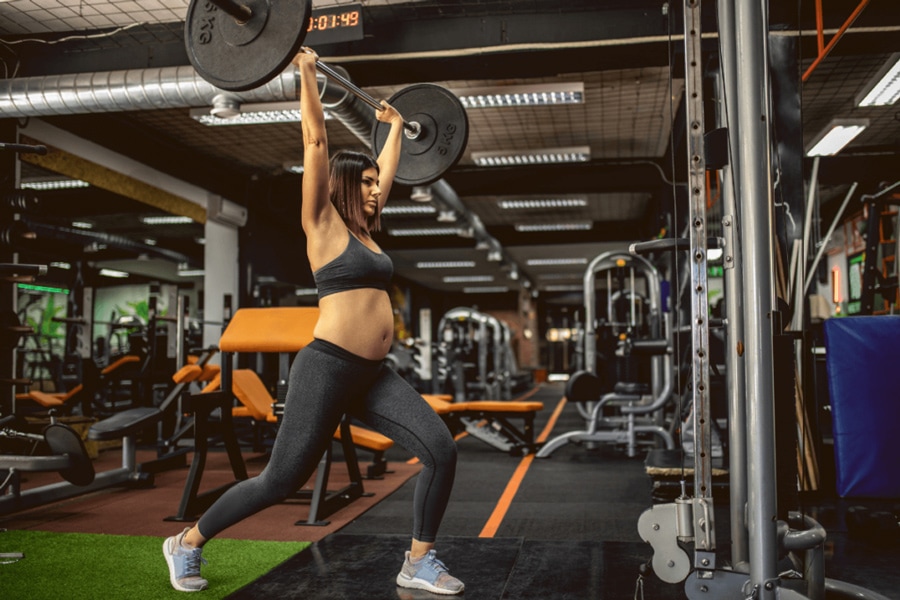Hi, I’m Steve,
Powerlifters use mouth guards to improve their performance and safety when lifting heavy. Mouth guards, in and of themselves, will not magically make you stronger. When used along with the biting down technique, though, they can improve your lifts by as much as 10 percent.
Why Do Powerlifters Use Sports Mouthguards
Mouth guards also protect your teeth, mouth, and jaw.
I’ve trained many strength athletes over my four decades as a certified personal trainer. Some have but most have not used mouthguards. I’ve also dug deep into the scientific research on powerlifter’s use of mouthguards.
Read on to discover the six key reasons why many powerlifters use mouthguards. We’ll also look at six studies on the subject to get the latest research findings. Finally, we offer some practical powerlifting mouthguard tips.
Mouth Guards Can Improve Strength by 10%
The idea that mouthguards can make you stronger in the gym gained credence in the early 1980s. But, it wasn’t until the 2000s that researchers took up the issue.
According to a 2008 study, wearing a mouthguard can make you 10 percent stronger. The study involved 12 experienced weightlifters doing the leg extension exercise. The researchers were able to measure the force greatest voluntary isometric contraction.
The test subjects performed the leg extension four ways:
- Without a mouthguard and with hands on their lap
- Without a mouthguard and with hands squeezing the hand grips
- With a mouthguard, while biting down as hard as possible
- With a mouthguard, while biting down, squeezing the hand grips and doing the valsalva technique
Test subjects were able to lift 10 percent more weight when they wore a mouthguard and bit down on it. Gripping handles and using a breathing technique saw a 15 percent increase.
The valsalva technique involves breathing in on the negative part of the exercise. And breathing out on the positive part.
The researchers put the strength increase down to concurrent activation potentiation (CAP). This involves strongly contracting other muscles to make the target muscle stronger.
That is why the best results were achieved by simultaneously clenching down on the mouthguard and the handgrips.
Here’s the bottom line…
Wearing a mouthguard will not magically improve your strength by simply wearing them. What they will do is help to keep your mouth safe when you use the CAP technique. Biting down is the real key to getting that 10 percent strength improvement.
Mouth Guards Improve Breathing When Lifting Heavy
When you wear a mouthguard, a slight gap is created between your teeth. This is the case even if you clench down, as in the CAP technique. This gap allows air to travel into your body, even when you are biting down. As a result, you are able to use the clenched jaw technique without risking passing.
Passing out from holding your breath when lifting heavy isn’t common. Over 40 years of training bodybuilders and powerlifters, I’ve seen it only twice. But I have had many people feel lightheaded after a heavy set of deadlifts or squats.
These were often novice lifters. They were holding their breath for too long while trying to do the Valsalva technique.
When you wear a mouthguard, you are able to better control your breathing. This helps to prevent lightheadedness (or passing out) during max effort lifts.
Mouthguards Help Powerlifters Prevent Teeth Cracking
To benefit from a mouthguard, powerlifters need to bite down. You run the risk of damaging your teeth when you perform the CAP technique without a mouthguard.
The clenching and grinding of your teeth during a heavy workout may cause dental issues. Your teeth are made of pulp, cementum, and enamel. They are the hardest part of your body.
So, it can lead to holes in the teeth, cracking and chips splintering off a tooth.
Even small holes in a tooth will cause food to get stuck. This can lead to cavities and all the dental (not to mention financial) issues that come with them.
You will prevent tooth damage from biting down when lifting by wearing a mouthguard.

